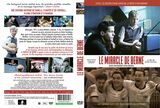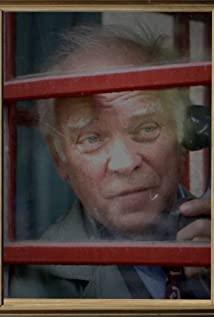In the World Cup final on July 4, 1954, the unpopular German team defeated the Hungarian team, which was invincible in world football at that time, and won the Remit Gold Cup, which became a story in football history. This is the "Miracle of Bern".
Maybe no one can explain why this game of twenty-two people and a ball, plus the referee and the goalposts, makes the earthlings so crazy. Are they all balls? Ha ha. But no one will deny the various human emotions that are attached to the little ball, and these emotions sometimes even rise to the height of the nation. Chirac held the cup for France and shouted; Merkel was ecstatic for Germany's goal; Real Madrid won the championship and Madrid was empty; the Korean miracle made the Red Devils famous all over the world. It doesn't matter if you don't understand, enjoy the joy of victory and feel the joy of sports is rare.
The Federal Republic of Germany in 1954 was devastated and left in limbo. The aftermath of the war is still raging in the hearts of Germans. As the main initiator of the world war, the German nation bears the cross of sin. Until now, the Germans' introspection on the responsibility of the war is still quite profound. Some time ago, the German president was forced to resign due to remarks suspected of imperial expansionism. The deep sense of guilt and the enormous pressure to rebuild the country made Germans understand how difficult it is to live. The more difficult it is, the more emotional support is needed in our hearts. The Federal Republic of Germany team that went to the World Cup in Switzerland has become the banner of German hope. That's why after losing the first game to Hungary, the coach received numerous criticism letters from home. "You should go to the nearest place to find a rope to hang yourself with, and then recycle the rope." (Who said Germans don't have a sense of humour? It's just cold.>
The German-Hungarian showdown attracted all Germans. Factories closed, schools closed , newspapers closed, the government stopped, and even monks stood by the radio to listen to reports from the front. When the final whistle blew, excited commentators shouted: "It's over! It's over! It's over! It's over! Federation! Germany is the world champion!" At that moment, the whole Germany was boiling. In this victory, the Germans regained their long-lost dignity, courage and confidence. I believe that many Germans are very happy to compare the miracle of Bern with the countries that followed. The miracle of economic take-off is connected. In this sense, football has become a catalyst to lift the national spirit. With this layer of factors, maybe it is not difficult to understand the magic of football. :-D
The film that recorded this unforgettable history is called "The Miracle of Bern". Football isn't the only theme of the movie. As the director said, this is not a football movie, football is more of a symbolic meaning in this movie.
Through a family story I saw the pain and strength of post-war Germany. The mother runs a small bar, the elder sister is a waiter, the elder brother earns some extra money by playing the piano, and the younger brother also rolls cigarettes to supplement the family. His father was a prisoner of war and was imprisoned in the Soviet Union for eleven years and four months. Can't forget the dazed look on his father's face as he got off the train when he was released home. The long and miserable prisoner of war years left him with physical and mental wounds, especially the mental wounds that cannot be repaired. The unfamiliar family made him at a loss, the rebellious sons and daughters who disobeyed discipline gave him a headache, the familiar mines in the past reminded him of the unforgettable years of prisoners of war, and the mistreatment of the government, the pain in his father's heart can be imagined.
The blurred German paratroopers in "The Dawns Are Quiet Here"; the murderous German devils in "Zoya and Shura"; the tyrannical concentration camp guards in "Schindler's List"; the German medic who rescued American soldiers in "Band of Brothers" and disabled German soldiers under the care of American soldiers. These were originally what German soldiers should have looked like in my eyes. The character of my father, a tragic returning prisoner of war, is something I have never encountered. The existence of this character undoubtedly restores the true image of post-war Germany. The pastor told the father that only by confiding in the pain in his heart can he obtain his children's forgiveness. He told his son about his prisoner of war experience not to gain sympathy, but to hope that family members would understand and accept him. After all, it was not only the invaders who were deeply traumatized by the war, but also the many German men who were forced to go to the front lines of the war and their relatives behind them.
My father used to be a football player. His happiest scene in the film is when he hits the goal with a golden hook upside down. The purest and most simple joy. The warmest thing is that the father and son drove to Bern to watch the final battle, and the father watched his son run to the stadium. All the incomprehension and resentment were slowly resolved in this scene. This seems to indicate that the self-esteem of the German people is slowly calming down after being hit hard by the war. The most touching thing is that the father cried like a child when he read the letter from his eldest son, and the son comforted him: "Children in the Federal Republic of Germany can also cry sometimes."
If the image of the father represents the sins of Germany that need redemption, then the mother represents the German people who endure humiliation and bear the burden and are strong and alive. Facing the son who didn't understand his father, the mother comforted him: "It's not your fault, nor his fault. Give him some time and everything will be fine."
There will be bread, milk will be there, everything will be fine.
In the final scene, the train carrying the returning heroes drives towards the horizon as the sun sets... Christian Eichler says in his Encyclopedia of Football Myths: "The victory in Bern is the birth of German football virtue. , is the rebirth of national self-confidence." Munich "Daily Evening News" said, "This World Cup is equivalent to the Marshall Plan - the former gave Germany the spiritual motivation to rebuild its homeland, and the latter gave the economic foundation." Miracle, the economic miracle of Germany after the war has also begun.
Germany has hosted two World Cups and won three championships. The most memorable experience for Germans is the experience of winning the World Cup in 1954. It was Germany's first World Cup participation since World War II and was seen as a sign of its re-acceptance in the world. In the words of German political scientist Heinrich: "That was the day when the German Confederation was truly born." The experience of hosting the World Cup in 2006 allowed Germany to regain the "patriotism" it had been ashamed to talk about for many years. After the defeat of World War II, patriotism was once a forbidden area in the field of German education. Blumlik, a professor of sociology at Goethe University in Germany, believes that the 2006 World Cup in Germany was a great psychological turning point. For the first time, the German people truly got rid of the shadows left by the crimes of the Nazis in World War II, and they hoped to "return" to a normal nation. pride. [Global Times 2207 Issue 7 Edition]
Of course, the movie is never so heavy, and there are some lighthearted scenes. The cutest is the journalist couple. The husband told his wife, who was excitedly preparing for the honeymoon, that he was going to Switzerland to report on the World Cup, and that the honeymoon was planned to be aborted. According to past practice, the wife must have a serious face, forcing her husband to choose between football and his wife. After all, the reporter's boss also said: "Football is the natural enemy of women." Unexpectedly, the wife asked her husband to take her with him. Who said women and football are in the same boat? It seems to me that this beautiful lady is also fascinated by football. In the pub, the couple found the German players sneaking out to drink, so they danced and swayed around the players in an attempt to eavesdrop on the insider conversation. Before the final, the two also made a bet that if Germany wins, the future child's name will be decided by the wife, otherwise, the husband will name the child if Germany loses. With Germany two goals behind, the husband began to conceive of the child's name. When the wife heard it, wow, her daughter's name was so ugly, she couldn't bear it anymore, she couldn't sit still anymore, she stood up and shouted cheers for Germany. Driven by her, Germany's cheers resounded throughout the stadium. After hearing that his wife was pregnant, the reporter's husband was so excited that he didn't even want the interview certificate, so he protected his wife from the crowd. The son and father who picked up the interview card boarded the special train for the German team. The son complied with the agreement and presented two bottles of cold beer to the "boss" who scored the goals.
There's never been a better time to watch this movie than during the World Cup, even better if you're a German fan. Although I have always supported orange out of my love for the Dutch team in 1998 (Tucao: You don’t know any of the players of the Dutch team now. Retort: Humph. Why am I a nostalgic party? =.=), but I have always been optimistic about the German team. Just like their black and white jerseys, the crisp style of play always touches my cuteness. In the 2002 finals, I was the only one in the class who supported Germany, and everyone else cheered for the alien with a huge haircut. It's a pity that this guy with a huge hairstyle became the focus of the audience. Hopefully Germany will also make it to the final this time. Oh too!
View more about The Miracle of Bern reviews











